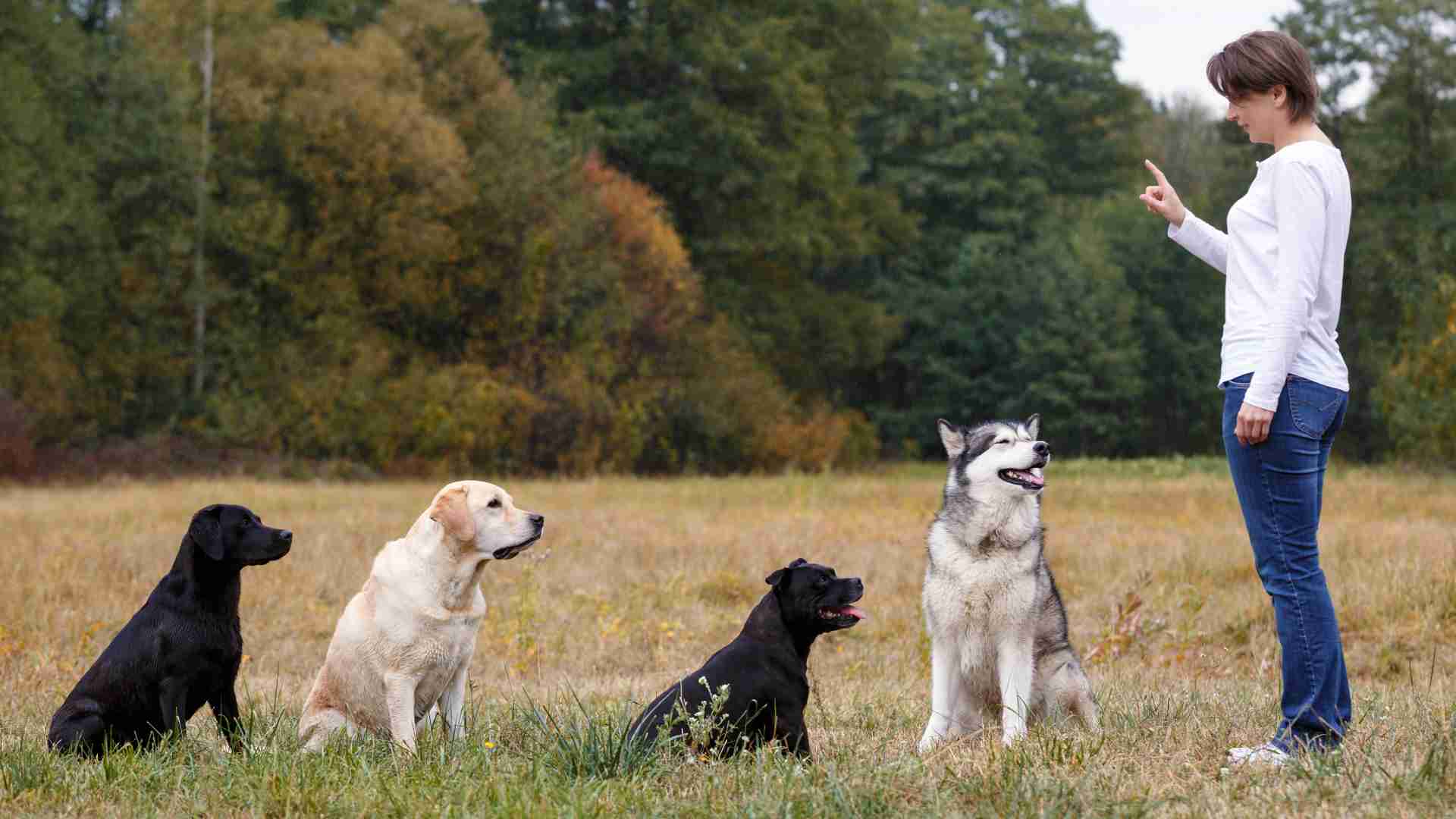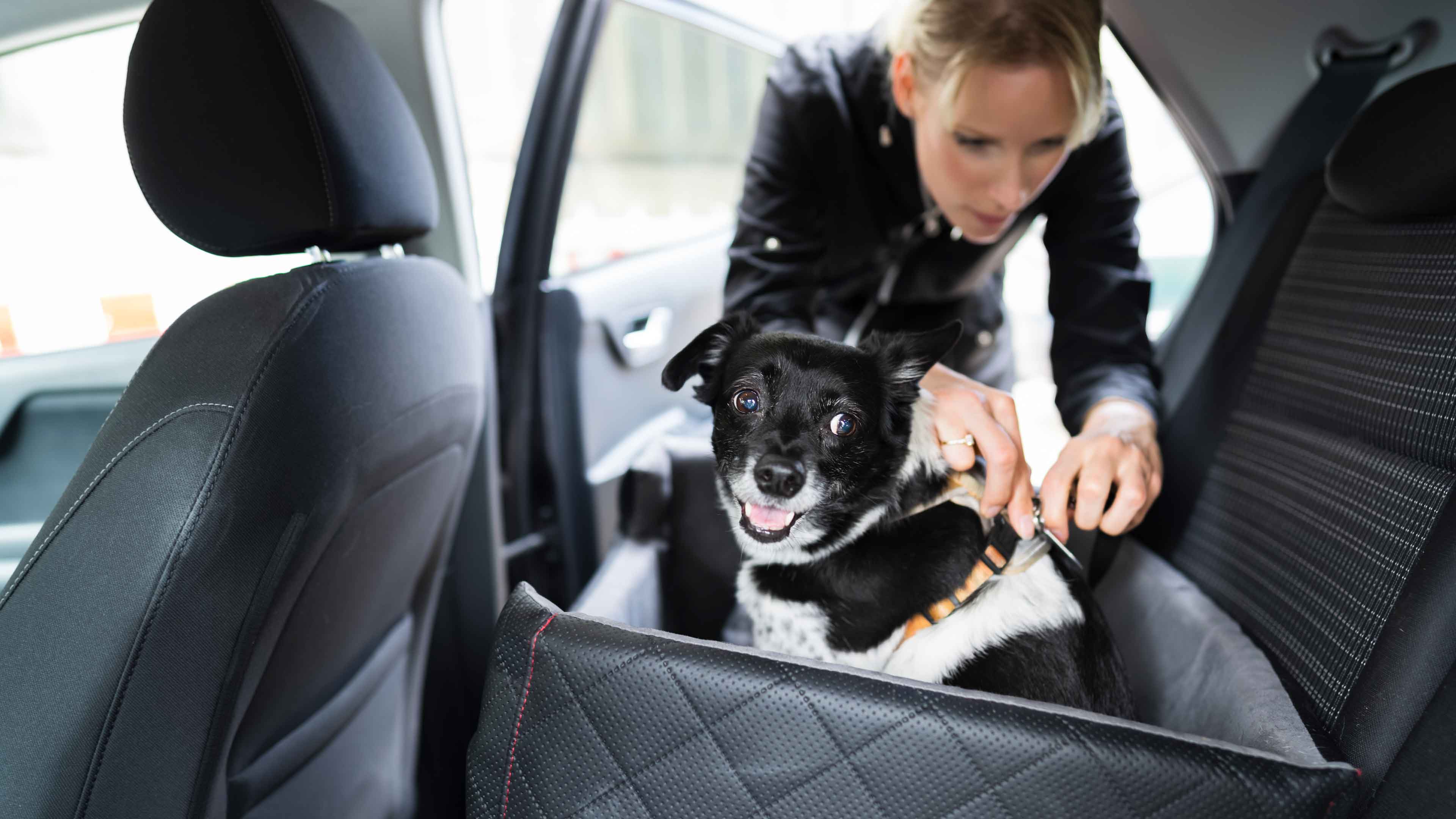obedience training for dogs
Dog are such animals sometimes. Following their instincts, ignoring our petty requests to “sit” and “stay” and “stop that barking!” We sort of take it for granted that our dogs will do what we tell them to do. And usually, they do. But they’ve got minds of their own, and when they don’t listen to our commands, it’s frustrating and can feel like we’ve lost control of the situation.
Still, they're our BFFs, and we love them so much that we're willing to let a few unwanted behaviors slide. But wouldn't it be nice if your pooch followed commands a bit better?
Definitely. And we’ve got some tips you can try… but first: If your dog has a problem like aggression, separation anxiety, destructive chewing, or something else that’s more serious, you might need more help – so call your Banfield veterinary team and make an appointment. Hopefully everything checks out – no medical issues, no hearing loss, etc. – and you’re just dealing with a doggo who needs some listening help.
3 ways to help your BFF pay attention to commands
It’s easy to feel like you’re being ignored when your dog turns and walks away right after you tell them a command. Here are three tips to help improve things:
- Go back to the basics. Teach, practice, and be confident with your basic commands to your pal. Spend time every day working on the classics, like Come, Heel, Sit, Stay, and Drop it. Reward successful listening and behavior with kind words, scratches behind the ears, and treats.
- Be consistent and positive. Always use the same words, visual cues, tone of voice, and body language when commanding your dog. Changing your technique or having other people use different commands or ones that are different from your own style can confuse your dog. Dogs, similar to most people, respond much better to positive reinforcement training of good behavior – so instead of getting upset or punishing them when they don't listen, look for small positive behaviors you can reward – and keep building from there.
- Have reasonable expectations. Ever notice how your dog stops listening to you when you get to the dog park? Hey, it’s hard to blame them, with so many dogs, smells, and sticks around. There will be times when your furry friend just won’t pay as much attention to you as you want. So make sure they know and respond to the basic commands really well at home, where there aren’t as many distractions – and then slowly add other dogs and people to the mix. And keep them on a leash.
If obeying is still a no-go, try a trainer
There are some amazing dog whisperers out there. Ask your Banfield vet team for a recommendation – even a couple one-on-one training sessions could make a big difference.
Trainers can observe your interactions with your dog, give you pointers, and may create a unique behavior plan focused on steadily improving your furball’s listening skills… or maybe even your skills in speaking their language. Plus, training will help you and your dog grow closer and build an even stronger connection.
Doesn’t that sound sweet?
 Mites and mange
Mites and mange Podcast - Not Just Fluff
Podcast - Not Just Fluff











